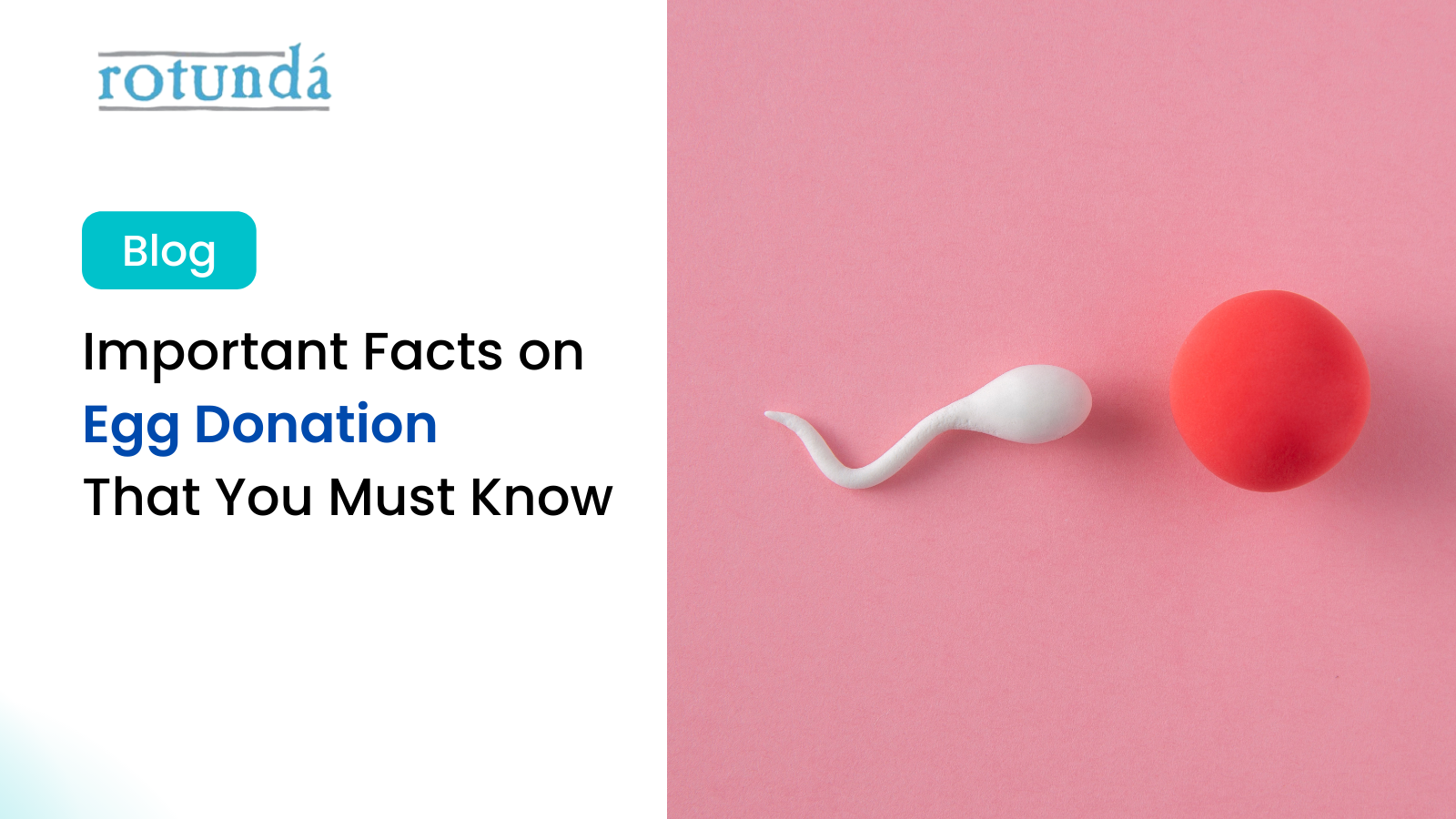



Infertility is a growing concern among modern couples, with around 48 million couples and 186 million individuals affected globally. Seeking infertility treatment, many couples resort to the egg donation method. Egg donation is a type of IVF treatment in which the egg from a healthy donor is implanted in the uterus of a recipient who is unable to conceive. As this is a complex procedure and can shape your future, it’s important to know about it in detail.
If a woman fails to get pregnant after undergoing several rounds of infertility treatment, infertility doctor may suggest the donor egg IVF.
Both the donor and the recipient need to prepare for the procedure. First, the menstrual cycle of both the donor and the recipient is synchronised with medication. This is done so that when the donor’s eggs are ready for embryo transfer, the recipient’s uterus is ready to accept the embryo. Nowadays with advanced vitrification technology we can freeze the embryos formed and thaw and transfer them to the recepient with good results
While the donor receives hormone injections that induce the ovulation and maturity of several eggs in a single cycle, the intended mother is given oestrogen and progesterone supplements that help to prepare the uterus for embryo transfer.
The donor eggs are retrieved through a minor procedure called a transvaginal ovarian aspiration. They are fertilised with the sperm of the recipient’s partner in the laboratory, and after 3-5 days, one or two gametes are transferred into the recipient’s uterus.
If you learn more about the procedure or have any questions unanswered here, then you can consult Dr. Swati Allahbadia. As one of the best gynaecologists in Mumbai, she will explain everything in detail and resolve all your issues.
When women are not able to conceive with their own eggs due to female infertility issues, the donor egg process gives them hope of becoming a mother. You must ask your doctor for detailed information about the processes involved in egg donation.
Women with the following conditions can benefit from the procedure:
Egg donation plays a significant role in helping individuals and couples achieve their dreams of starting a family. However, not everyone can become an egg donor. The process involves certain criteria to ensure the safety and well-being of both the donor and the intended recipient. In this procedure, a donor must be:
Egg donor in vitro fertilization (IVF) has revolutionized the field of assisted reproductive technology, offering hope to individuals and couples struggling with fertility issues. But what exactly is the success rate of this procedure? Let's explore the numbers.
Typically, the success rate of the procedure is over 50% on the first attempt which can rise to almost 90% in subsequent attempts.
It is important to keep in mind that the success rate of egg donor IVF can still vary depending on several factors unique to each individual or couple. Factors such as the age and overall health of the recipient, the quality of the donated eggs, the expertise of the medical team, any underlying fertility issues, clinic's experience, success-oriented protocols, and the quality of their laboratory facilities can influence the outcome.
Therefore, it is crucial to have open and honest discussions with the fertility specialist to understand how these factors may affect the success rate in your specific case.
Egg donation is a generous and life-changing act that requires careful consideration and attention to ensure the well-being of both the donor and recipient. After undergoing the minor surgical procedure involved in the process, certain precautions should be taken to facilitate a smooth recovery.
Age and Reproductive Health:
First and foremost, an egg donor must be between 21 and 33 years of age. This age range is considered optimal for achieving successful outcomes in egg donation. Additionally, the donor should have a healthy reproductive system, capable of producing viable eggs for fertilization.
Previous Successful Pregnancy:
Having had at least one successful pregnancy is another crucial criterion for becoming an egg donor. This requirement helps ensure that the donor has already demonstrated their ability to conceive and carry a pregnancy to term successfully.
Infection-Free Status:
To safeguard the health of both the donor and the recipient, it is essential for the donor to be free from infections such as HIV, hepatitis B and C, and sexually-transmitted diseases.
Mental Evaluation and Physical Tests:
Apart from the specific criteria mentioned above, the selection process for an egg donor involves an extensive mental evaluation and various physical tests. These tests often include an ovarian reserve assessment to determine the donor's ovarian function and the potential for a successful egg retrieval.
Maintain a healthy diet and eating habits:
Proper nutrition is important for an egg donor. Healthy meal plans helps in faster recovery.
Take rest and avoid long travelling:
Resting helps reduce the risk of complications and allows the body to regain its strength.
The government currently does not allow financial transactions between the donor and the recipient, but the Indian Council of Medical Research has proposed to make suitable amendments to the laws related to egg donation costs. The Donor is compensated for loss of work days, travel and supplements as well as diet
It is important to consult with fertility doctor for the personalized guidance and advice of the egg donation and its treatment cost.
So, now you have make up your mind to take a chance. Then your next would be to book your consultation with Dr. Swati Allahbadia, she is a Senior Gynaecologist, Endoscopist and Fertility Physician at Rotunda CHR, Mumbai.
She will discuss and better guide you about the egg donation treatment process or about the related female infertility treatments. To know more about the oocyte donor program which rotunda fertility clinic in mumbai offers, click on this blog link about Rotunda CHR Oocyte Donor Program.